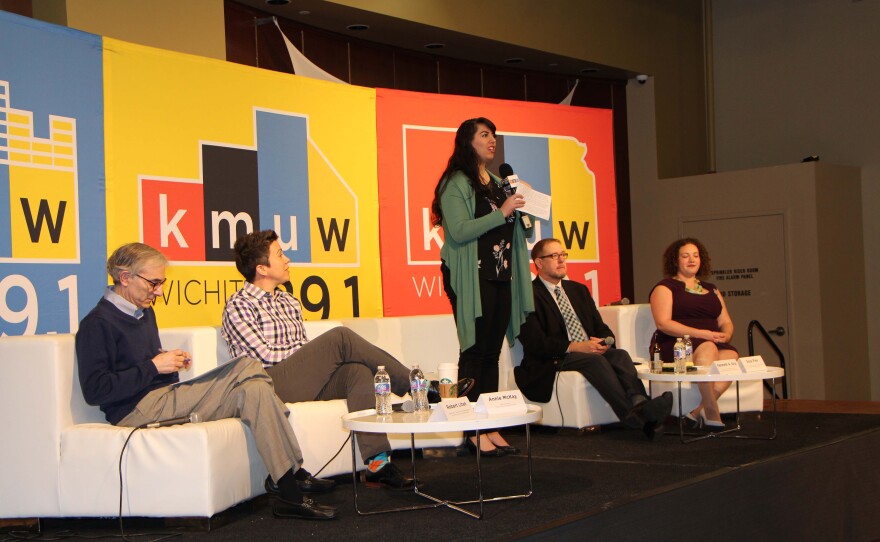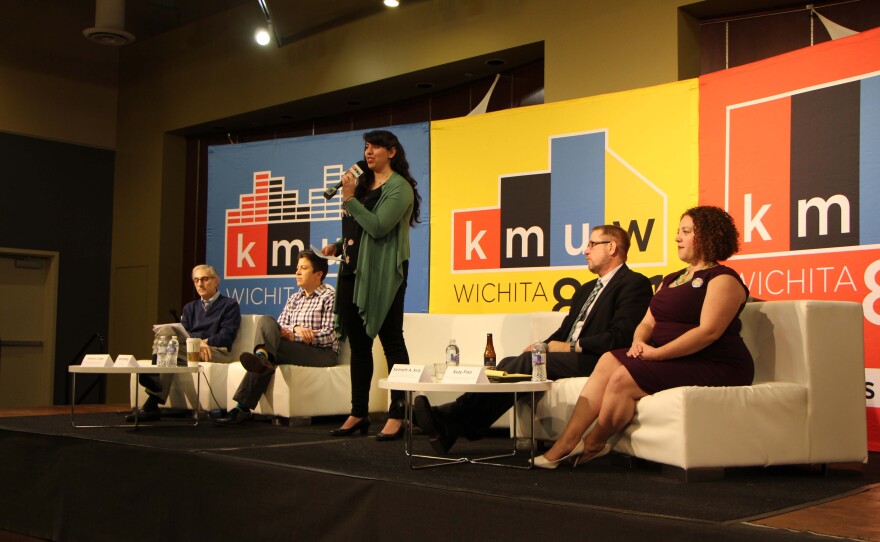March 8, 2016 at Abode Venue
Our third Engage ICT: Democracy On Tap panel, held at Abode Venue, delved into a complicated topic that’s sure to shape Kansas’ elections this year: the economy.
The four expert panelists provided insight into different aspects of the economy, breaking it down at the national, state and city level, and looking at community efforts to encourage economic growth.
https://www.youtube.com/watch?list=PLzf01AZaXytXsgxzZknp3EolYvlCG-Bmh&v=8H_7OV6_0Wk
Robert Litan, adjunct senior fellow at the Council on Foreign Relations, noted that much anger over the national economy stems from our growth rate—the economy is growing consistently at 2 percent per year, the slowest recovery of the post-war era. And Litan said that he doesn’t “have to be Bernie Sanders” to point out that growth has been “wildly unequal” for different economic classes.
At the state level, Kansas has two incomes coming in: sales tax and income tax, explained Annie McKay, executive director of the Kansas Center for Economic Growth.
In 2012 and 2013, the government proposed transforming Kansas from a “two-income household” dependent on both of these incomes into a state that relies heavily on the sales tax—but the effect hasn’t been as immediate as it was promised, and the metaphorical Kansas family “has not effectively quit that full-time job,” McKay said.
“We have yet to visit the underlying problem that the state of Kansas as a family needs two full-time jobs to pay the bill,” she said.
Even locally, Wichita has experienced long-term stagnation, said Ken Kriz, director of the Kansas Public Finance Center and professor of public finance at Wichita State University.
From 1995 on, the city has seen employment go up by just 11 percent.
“The graph is fairly flat,” Kriz said.
To see true job growth, the city will need to have more businesses expand or start up in the area; it won’t just be the result of new businesses moving in to Wichita. Kansas ranks right in the middle of the country for startup activity—25th out of 50 states—but as Suzy Finn, president of Young Professionals of Wichita, pointed out, there’s a strong community push in Wichita to change that scenario.
Despite producing so many STEM-level graduate students, Wichita can’t seem to retain them. Brain drain has been a significant problem for Wichita, with about 20 percent of young talent leaving the city every year—and taking about $60 million in potential revenue with them.
“Those are really big numbers,” Finn said.
But a new push to revitalize Wichita’s downtown, among other development efforts, could be a turnaround for the city and its ability to retain younger talent.
“There are some really good things happening in the Wichita community,” Finn said. “But there is still a lot of work to be done.”













































































































